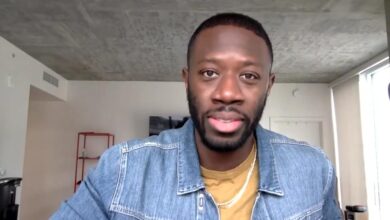Leila Centner: Entrepreneur, Educator, and Controversial Voice in Alternative Education?

Leila Centner is a name that has attracted both praise and scrutiny in recent years. As the co-founder of Centner Academy in Miami, Florida, she is recognized for blending holistic wellness, innovation, and alternative education philosophies. However, her school’s outspoken stance on COVID-19 vaccination and her involvement in a contentious land development deal have placed her in the national spotlight.
This article provides a comprehensive look at Leila Centner’s background, business ventures, educational philosophy, controversies, and the broader implications of her public profile.
Early Life and Career
Before becoming a well-known figure in the education and wellness communities, Leila Centner built a solid foundation in the corporate world. She earned a degree in accounting and began her career working for prestigious firms such as Arthur Andersen and Deloitte & Touche. These experiences honed her financial skills and eventually led her to become the Chief Financial Officer of the Highway Toll Administration, a role that added further credibility to her business acumen.
Leila’s professional background laid the groundwork for her future entrepreneurial ventures, including her most ambitious project yet: the creation of a private school rooted in a unique blend of academic rigor, mindfulness, and non-mainstream health practices.
The Founding of Centner Academy
In 2018, Leila and her husband, David Centner, co-founded Centner Academy, a private K–8 school located in the heart of Miami’s Design District. The school opened its doors to students in 2019 with a mission to cultivate the “next generation of leaders, innovators, and entrepreneurs” by combining rigorous academics with character development and mindfulness.
Centner Academy quickly distinguished itself by emphasizing social-emotional learning, neuroscience-based teaching strategies, meditation, and clean eating. The school promotes a non-toxic environment and incorporates farm-to-table food options and yoga into the curriculum. These alternative approaches gained attention from health-conscious and affluent parents seeking something beyond the traditional education model.
Educational Philosophy and Wellness Focus
Leila Centner is a passionate advocate for what she calls “conscious education.” At the core of her educational philosophy is the belief that children thrive best in environments that nurture not just academic excellence but also emotional intelligence, physical health, and creative thinking.
Key components of Centner Academy’s approach include:
- Mindfulness and Meditation: Daily sessions are incorporated to help students manage stress and develop emotional resilience.
- Nutrition and Wellness: The school implements an organic food program and promotes non-GMO, gluten-free, and low-sugar diets.
- Innovative Curriculum: STEAM (Science, Technology, Engineering, Arts, and Mathematics) subjects are taught through project-based learning to encourage curiosity and critical thinking.
- Global Awareness: Students are taught about entrepreneurship, leadership, and ethics from a young age.
These elements reflect Leila Centner’s belief in a holistic model that supports the mind, body, and spirit of every student.
The COVID-19 Controversy
Despite the progressive and health-oriented branding, Leila Centner became a polarizing figure in 2021 due to her outspoken stance against COVID-19 vaccinations. The Centner Academy implemented policies that banned newly vaccinated teachers from interacting with students and required vaccinated students to stay home for 30 days, citing the debunked theory of “vaccine shedding.”
These decisions sparked widespread backlash from public health officials, educators, and the media. The policies were based on scientifically discredited claims that vaccinated individuals could somehow pose a health risk to those around them—a theory rejected by the Centers for Disease Control and Prevention (CDC) and the World Health Organization (WHO).
Major media outlets, including The New York Times, CNN, and NBC News, covered the story extensively, raising concerns about misinformation and the role of private schools in setting health policies contrary to public health guidance.
While Leila Centner defended the policies by claiming they were based on parental concerns and the need for choice, critics argued that such practices contributed to vaccine hesitancy and undermined efforts to control the pandemic.
Public Response and Media Coverage
The fallout from the COVID-19 vaccination policy ignited a nationwide conversation about the responsibilities of private schools and the spread of medical misinformation. While some parents supported the school’s stance and praised Leila Centner for “protecting the health and autonomy of students,” others withdrew their children and expressed alarm at the school’s disregard for established science.
Despite the backlash, Centner Academy did not reverse its policies, and Leila Centner continued to speak publicly about her beliefs regarding health freedom and bodily autonomy. The controversy solidified her status as a polarizing figure: celebrated by some in the alternative health and wellness space, and criticized by medical professionals and mainstream educators.
The Miami Land Deal Scandal
In 2022, Leila and David Centner found themselves entangled in a political scandal involving a public-private partnership deal with the city of Miami. The Centners were granted rights to build an indoor athletic facility on public land adjacent to their school—a deal that soon came under investigation.
In late 2023, former Miami City Commissioner Alex Díaz de la Portilla was arrested and charged with accepting bribes in connection with the Centner Academy land deal. Prosecutors alleged that Díaz de la Portilla took payments in exchange for helping the Centners secure the development approval.
Although the Centners have denied any wrongdoing, public scrutiny intensified. Parents, activists, and local politicians called for the deal to be nullified, arguing that it privatized public land for the benefit of a wealthy school and its donors.
The scandal cast a shadow over Leila Centner’s public image and reignited debates about the influence of private money in public affairs.
Philanthropy and Personal Life
Outside the spotlight of controversy, Leila Centner has been active in philanthropic efforts, supporting various initiatives related to child development, wellness, and education. She and her husband have donated to charities and sponsored programs aligned with their values, including holistic health and entrepreneurial education.
Despite the controversies, Leila Centner maintains a strong following among those who align with her views on medical freedom, alternative education, and parent empowerment.
She continues to serve as the CEO of Centner Academy, steering its growth and expansion plans, including the possibility of opening new campuses or franchising the model to other cities.
Legacy and Future Outlook
Whether you view her as a pioneering educator or a purveyor of pseudoscience, there is no denying that Leila Centner has made a significant impact on the educational landscape in South Florida and beyond. Her blend of innovation, wellness advocacy, and unconventional policies has brought both success and controversy.
As public discourse around health freedom, educational choice, and misinformation continues to evolve, Leila Centner’s role as a cultural figure is likely to remain relevant. Her story highlights the complex intersection of entrepreneurship, education, and ideology in modern American society.
Conclusion
The name Leila Centner is now associated with a distinct and controversial approach to education—one that fuses wellness, mindfulness, and parental empowerment with polarizing public health positions. As Centner Academy continues to grow, and as legal investigations unfold, the legacy of Leila Centner will remain a subject of intense public debate.
Whether admired for her visionary leadership or criticized for her health policies, Leila Centner has become a prominent example of how private education can influence national conversations about science, policy, and personal freedom. Also read. Brandy and Billy



